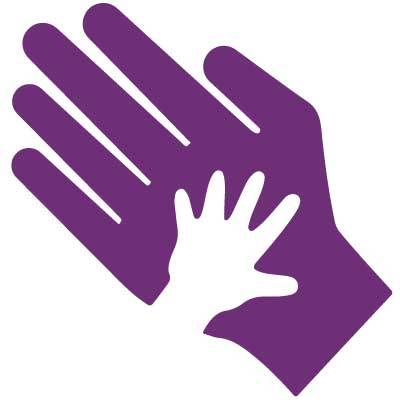Child Sexual Exploitation
Everyone working with children and young people in Bromley should watch our TAKE 5 video briefing on Child Sexual Exploitation
Please take 30 seconds to tell us whether the video was useful to you by clicking on this very short survey and do please share it with your colleagues.
If after watching it you have concerns about a child, click here if you are a member of the public and click here if you are a professional. Always call 999 if you have serious concerns about a child's immediate safety.
CSE
Child Sexual Exploitation (CSE) is child abuse, with those children and young people who become involved facing significant risks to their physical, emotional and psychological health and wellbeing.
Sexual exploitation of children and young people under 18 involves exploitative situations, contexts and relationships where the young person (or third person/s) receive ‘something’ (e.g., food, accommodation, drugs, alcohol, cigarettes, affection, gifts, money) as a result of them performing, and/or another or others performing on them, sexual activities.
CSE can occur through the use of technology without the child’s immediate recognition; for example being persuaded to post sexual images on the internet/mobile phones without immediate payment or gain.
Violence, coercion and intimidation are common. Involvement in exploitative relationships is characterised by the child’s or young person’s limited availability of choice resulting from their social, economic or emotional vulnerability.
A common feature of CSE is that the child or young person does not recognise the coercive nature of the relationship and does not see himself or herself as a victim of exploitation. Perpetrators of CSE can be from within or from outside a child or young person’s family.
CSE also needs to be understood in terms of its connectivity with a wider range of vulnerabilities that young people can be exposed to within Bromley. These include, but are not limited to harmful sexual behaviours, missing children, gang involvement, domestic violence, radicalisation, youth crime and mental health. An understanding of how young people are safeguarded in the context of their access to technology and use of social media is essential to effective safeguarding across of these aspects.
There are some key indicators that all professionals and volunteers working with children and young people should be alert to.
 The following factors were identified as making children vulnerable to abuse:
The following factors were identified as making children vulnerable to abuse:
- Living in a chaotic or dysfunctional household (including parental substance use, domestic violence, parental mental health issues, parental criminality)
- History of abuse (including familial child sexual abuse
- Risk of forced marriage, risk of ‘honour’-based violence
- Physical and emotional abuse and neglect)
- Recent bereavement or loss
- Gang association either through relatives, peers or intimate relationships (in cases of gang associated CSE only)
- Attending school with young people who are sexually exploited
- Learning disabilities
- Unsure about their sexual orientation or unable to disclose sexual orientation to their families
- Friends with young people who are sexually exploited
- Homeless
- Lacking friends from the same age group
- Living in a gang neighbourhood
- Living in residential care
- Living in hostel, bed and breakfast accommodation or a foyer
- Low self-esteem or self-confidence
- Being a young carer
 The following signs and behaviours were identified as being generally seen in children who are already being sexually exploited:
The following signs and behaviours were identified as being generally seen in children who are already being sexually exploited:
- Missing from home or care
- Physical injuries
- Drug or alcohol misuse
- Involvement in offending
- Repeat sexually-transmitted infections, pregnancy and terminations
- Absent from school
- Change in physical appearance
- Evidence of sexual bullying and/or vulnerability through the internet and/or
- Social networking sites
- Estranged from their family
- Receipt of gifts from unknown sources
- Recruiting others into exploitative situations
- Poor mental health
- Self-harm
- Thoughts of or attempts at suicide
This isn't a complete list. Sexual exploitation can happen to anyone no matter of gender, ethnicity or sexuality.
Watch Kayleigh's Love Story, a film by Leicestershire Police, about aspects of the last 13 days of the life of 15-year-old Kayleigh Haywood.
Also look at the Coby Persin Child Sex Exploitation experiment in the USA.
Help and Support
Look at Spot The Signs, which is a handy one page summary for everyone in Bromley.
The SAFEGUARD Mnemonic should be used by all professionals in Bromley to spot the warning signs of CSE
Operation Makesafe is for use by all licensed premises, taxi firms, hotels, off licenses, pubs, nightclubs in Bromley. 'See it, Say it'.
View the Child Exploitation Appropriate Language Guide 2022
See our Helping to Keep Children Safe Online page.
Read the Pan-London Child Exploitation Protocol 2021
Further information & advice can be found on the following sites:
Visit the Met Police 'Tell Somebody' website if you're worried about yourself or someone else.
The Ivison Trust (formerly Pace) supports families affected by criminal and sexual exploitation. Click on the pic below for support.
ITSNOTOKAY - If you're worried about yourself or someone else you can speak to a local specialist team. Click on the pic below.
CEOP - The National Crime Agency's CEOP Education team aim to help protect children and young people from online child sexual abuse. Click on the pic below for resources and information.
Their Parent Zone mission aims to improve outcomes for children in a digital world. Click on the following pic for information to families and schools.









